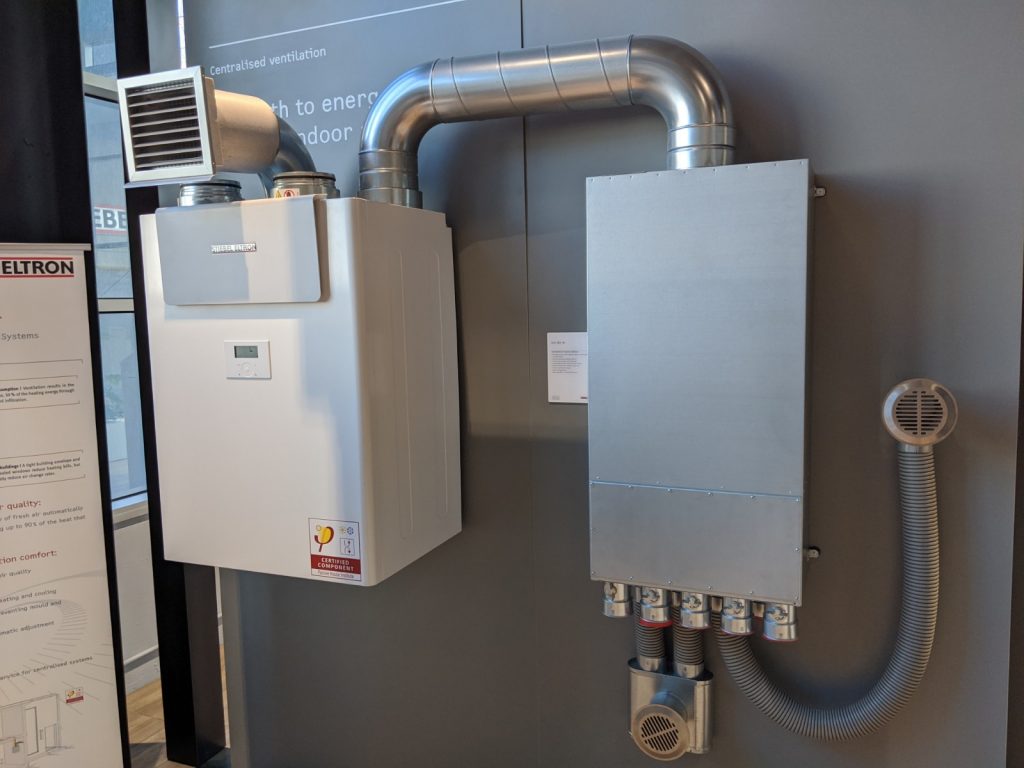HRV Explained: Everything You Should Know
Wiki Article
Discovering the Benefits of Heat Recovery Ventilation for Power Effectiveness in Homes
Heat Recovery Ventilation (HRV) systems supply home owners a functional strategy to enhancing power effectiveness. By redeeming warm from outward bound air, these systems can considerably minimize heating and air conditioning costs. Furthermore, they supply a constant supply of fresh air, enhancing interior air top quality and convenience degrees. As home owners think about lasting alternatives, comprehending the subtleties of HRV systems comes to be increasingly vital. What aspects should one assess prior to making such a financial investment?Comprehending Heat Recovery Ventilation Equipments

Just How HRV Improves Indoor Air High Quality

Power Cost Savings: The Economic Advantages of HRV
Making best use of power efficiency, heat recovery ventilation (HRV) systems supply significant financial advantages for house owners. By recuperating and recycling heat from exhaust air, HRVs considerably minimize heating & cooling expenses. This innovation can result in energy savings of up to 30%, relying on environment and use patterns. House owners usually observe reduced utility bills shortly after setup, making HRVs a financially sensible financial investment gradually. Furthermore, numerous areas give motivations or discounts for energy-efficient upgrades, better improving the economic allure. As power costs continue to why not try these out climb, the cost-effectiveness of HRVs becomes increasingly clear. In general, the consolidation of HRV systems not just advertises energy effectiveness but likewise adds to long-lasting monetary cost savings for households.The Ecological Influence of Heat Recovery Ventilation
A significant ecological benefit of heat recovery ventilation (HRV) systems depends on their ability to minimize overall energy intake. By reclaiming warm from exhaust air and moving it to inbound fresh air, HRV systems reduce the demand for energy-intensive home heating and cooling techniques. This decrease in power demand contributes to reduce greenhouse gas exhausts, as less fossil fuel is needed to keep comfortable interior temperature levels. In addition, HRV systems enhance indoor air top quality by effectively trading stagnant air with fresh exterior air, lowering reliance on mechanical cooling systems that can damage the atmosphere. Overall, the execution of HRV systems supports sustainable living methods and lines up with global initiatives to deal with environment modification by promoting energy efficiency in domestic setups.
Selecting the Right HRV System for Your Home
How can home owners ensure they pick the best heat recovery ventilation (HRV) system for their needs? They must analyze their home's size and design, as these elements influence airflow requirements. Next, reviewing the system's performance ratings is crucial, as greater rankings suggest far better performance and power cost savings. Homeowners should likewise consider installment and upkeep expenses, contrasting different brands and designs for worth. Additionally, it is very important to review sound levels, as some systems operate even more quietly than others. Consulting with heating and cooling professionals can provide tailored referrals based upon specific home problems. Lastly, analyzing user testimonials and guarantees can aid in making an informed choice, ensuring that the selected HRV system properly enhances indoor air top quality and energy performance.Frequently Asked Questions

Just how Usually Should I Clean or Maintain My HRV System?
The frequency navigate to this website of cleaning or preserving a heat recuperation ventilation (HRV) system generally depends find this upon use and ecological elements. Generally, it is recommended to carry out upkeep every 6 months to guarantee peak efficiency and air high quality.
Can HRV Equipments Help In Reducing Humidity Degrees Indoors?
HRV systems can successfully reduce interior moisture levels by exchanging stale, humid air with fresh, drier air from outdoors. HRV Heat Recovery Ventilation. This procedure assists maintain a well balanced indoor atmosphere, improving comfort and preventing moisture-related issues
What Is the Life expectancy of a Normal HRV System?
The life-span of a regular heat recovery ventilation (HRV) system varies, generally lasting between 10 to 15 years. Normal upkeep can expand its effectiveness and functional life, ensuring peak performance throughout its usage duration.Exist Any Kind Of Sound Worry About HRV Systems?
Noise issues with HRV systems can develop, specifically from follower procedure. Nevertheless, lots of modern-day devices are designed to minimize sound levels, ensuring they run silently while keeping efficiency, which deals with prospective disturbances in living atmospheres.Can I Set Up an HRV System Myself, or Do I Required a Specialist?
The individual contemplated whether to mount the heat recovery ventilation (HRV) system personally or work with an expert. Normally, while DIY installment is feasible, proficiency assurances correct performance and compliance with local building ordinance, boosting system performance.Report this wiki page